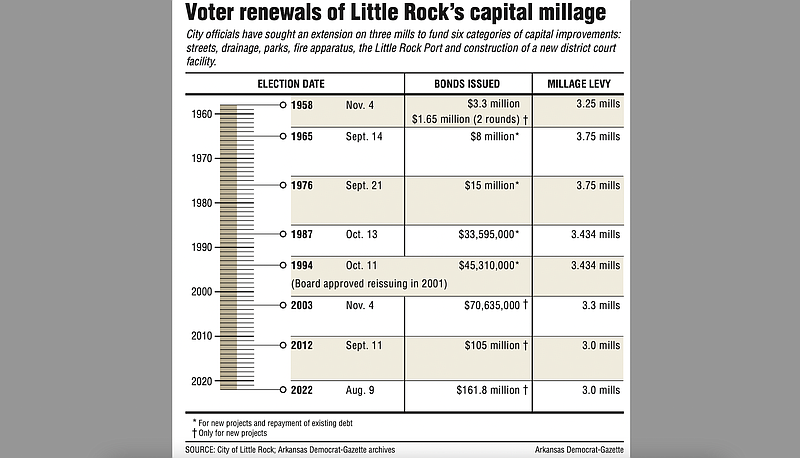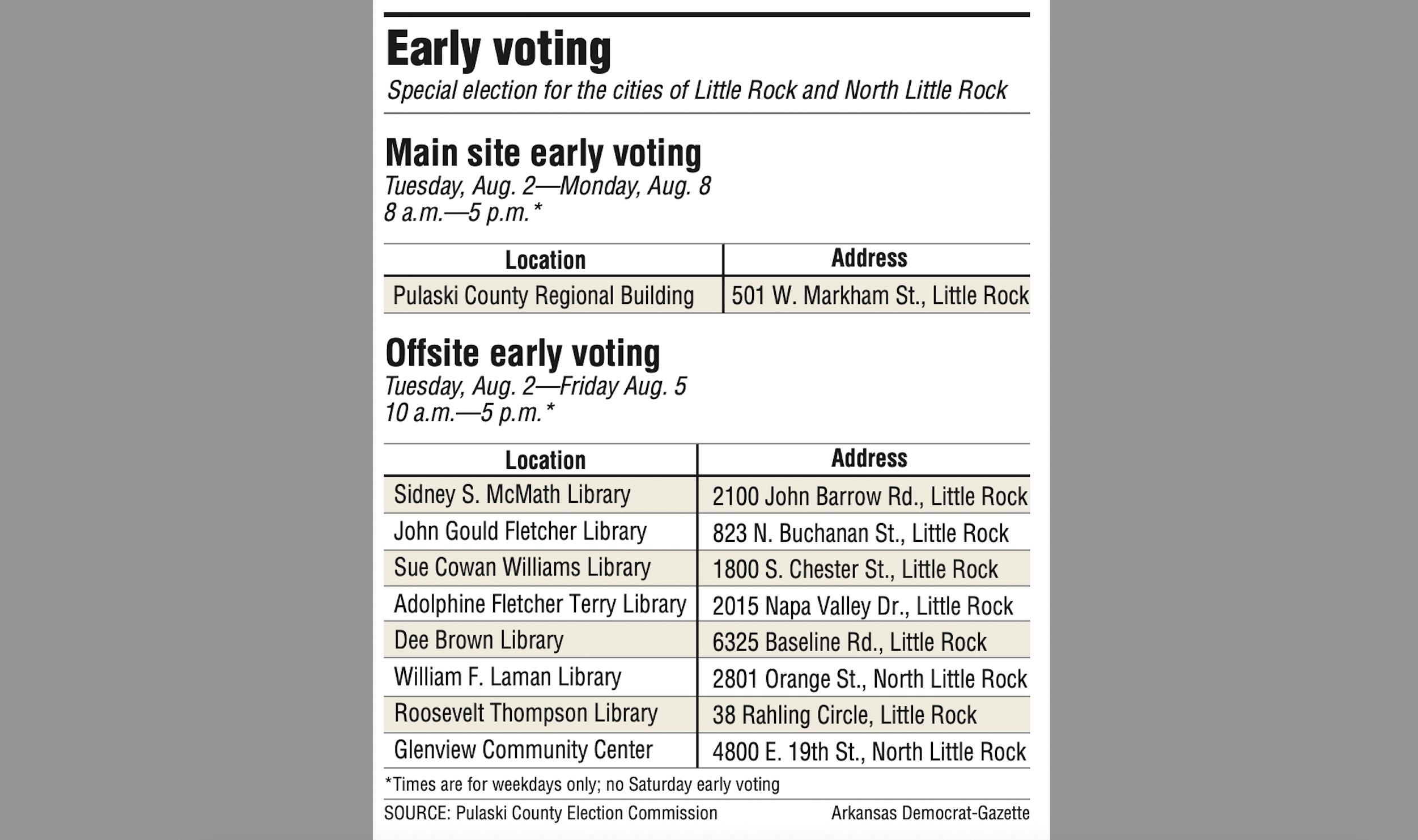Early voting begins Tuesday for the Aug. 9 Little Rock referendum on whether to extend a capital-improvement property tax and issue up to $161.8 million in bonds.
Voters are being asked to extend the tax at its current rate of three mills.
Bond proceeds will fund six categories of improvements. Each item will go before voters as its own ballot question, meaning it's possible that one or more items might fail even while others secure approval.
Roughly half of the bond proceeds are expected to fund improvements to streets and drainage.
The project categories and accompanying bond amounts listed on the ballot are:
• Streets -- $40.5 million.
• Drainage -- $40.5 million.
• Fire apparatus -- $19.5 million.
• Parks and recreation, including the Little Rock Zoo -- $37 million.
• Construction of a new district court facility -- $8.5 million.
• Expansion of the Little Rock Port industrial park -- $15.8 million.
The capital-improvement millage in Little Rock has been repeatedly extended since it was enacted as a result of a 1958 election. Voters in the city have authorized extensions at different amounts.
The most recent referendum to extend the capital-improvement millage took place in 2012, when residents approved reducing the rate from 3.3 to 3.0 mills and spending bond proceeds on street and drainage improvements.
Each mill works out to $1 in tax paid on every $1,000 of the tax-assessed value of a piece of property.
The city board voted earlier this year to pursue a stated term of 20 years with two bond issuances.
City Manager Bruce Moore led discussions of the millage extension and the city board ultimately voted on May 17 to call the special election.
Responding to questions via email last month, city spokesman Spencer Watson said the cost of issuing the bonds "will not be known until the sale of the bonds occurs. The number of series, bond structure, and timing of the issuances factor into the cost and are driven in part by market conditions and demand for the bonds at the time of sale."
Asked how residents should view the dollar values attached to the six project categories, Watson wrote that "the ballot amounts were sized using the percentages agreed to by the Board with the goal of $154 million in total project funds."
Former Little Rock Mayor Jim Dailey, who served from 1993 to 2006, and Danyell Crutchfield Cummings, the director of assessment and accountability for the Little Rock School District, have signed on as co-chairs of a campaign committee called "Renew Little Rock" in support of the millage extension.
In a phone interview Friday, Dailey said he got involved with the millage campaign at the request of Mayor Frank Scott Jr. He immediately said yes, Dailey recalled.
The ex-mayor described the infrastructure components of the millage extension as critical.
"You will never find a time in probably any level of government, including state, federal or local, where there is enough money to truly keep up with all of your capital needs that relate to streets, drainage and bridges," Dailey said.
Dailey also noted that the city board was unified on the need for a renewal of the capital-improvement millage in spite of the fact that members often disagree with one another, with city staff or with the mayor.
He called it "a powerful statement to me as a citizen that there's not a lot of debate about this being something that's important and is needed and should be supported."
No organized opposition to the capital-improvement millage extension has materialized to date.


